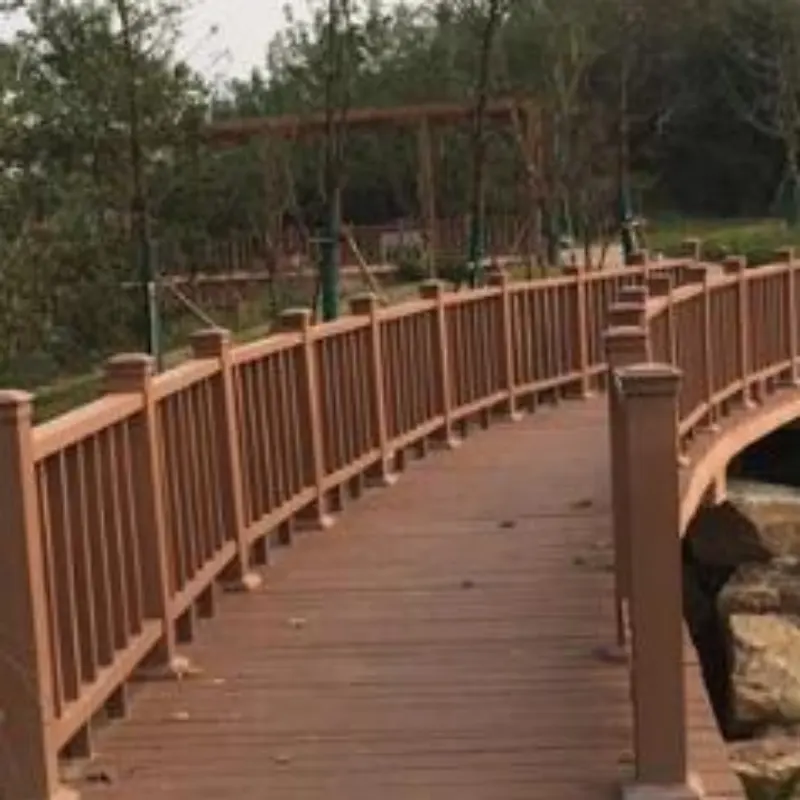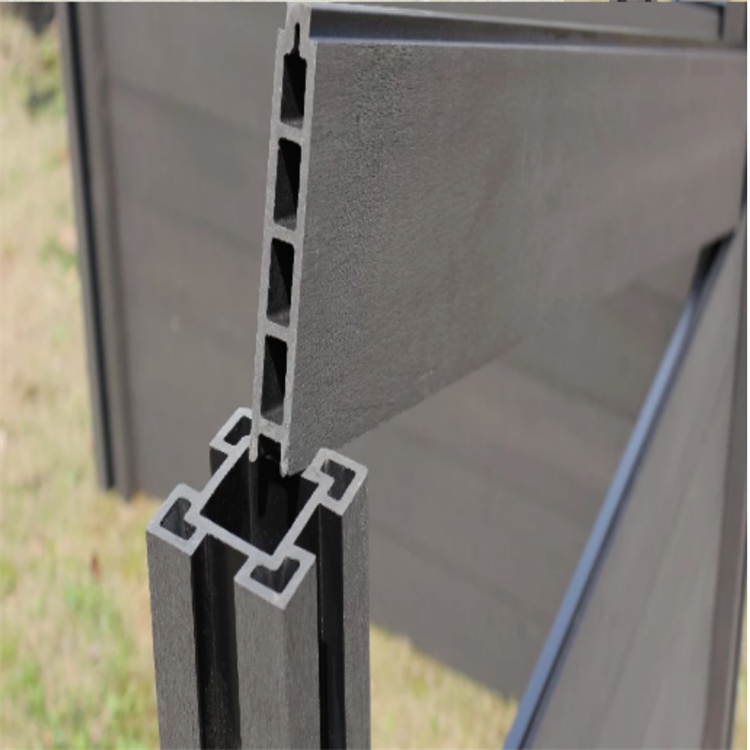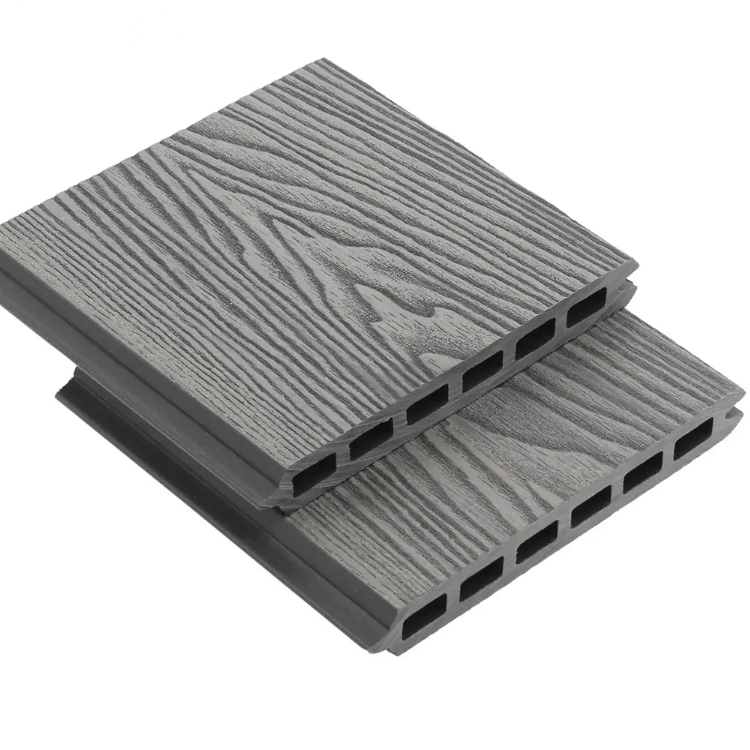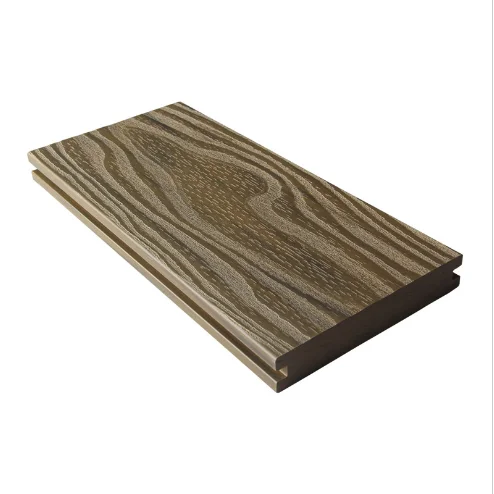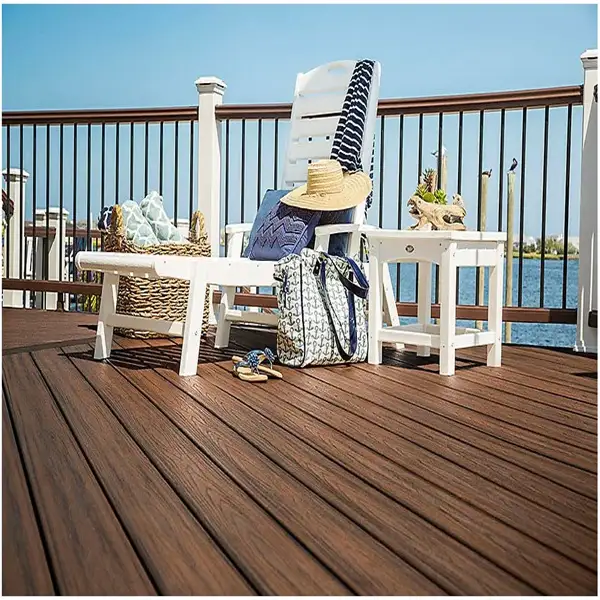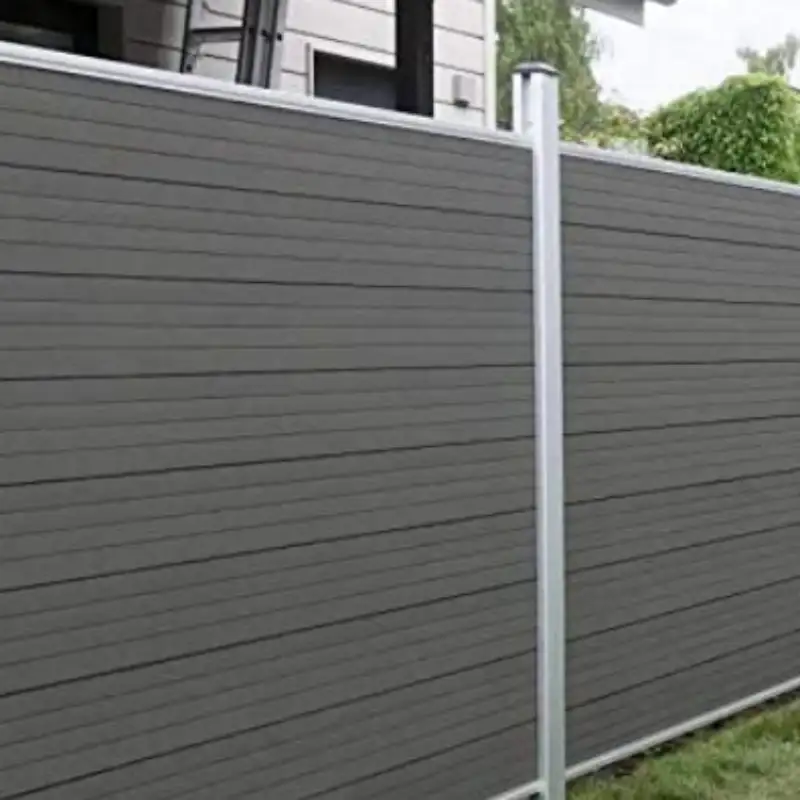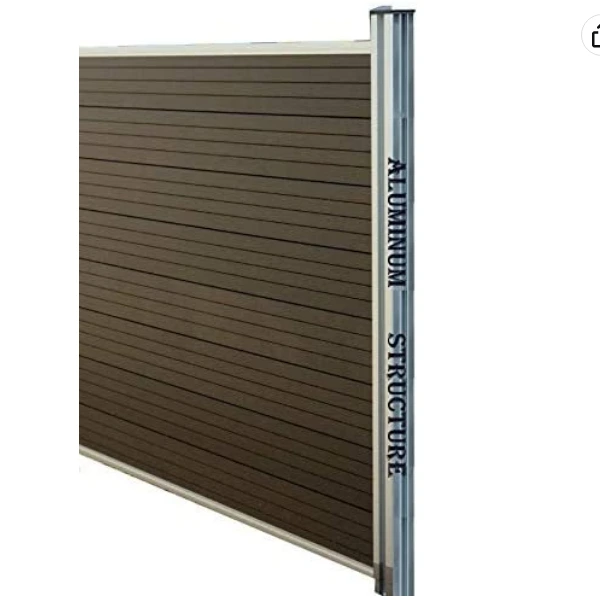Durability and Longevity
Wood polyethylene composite (WPC) fences are designed to withstand the outdoor elements such as parks, making them highly durable and long-lasting. The combination of wood fibers and polyethylene results in a fencing material that is resistant to rot, decay, and insect damage. WPC fences can withstand harsh weather conditions, including heavy rain, UV exposure, and temperature fluctuations, without warping or fading. Here are more specific details about the durability and longevity of WPC fences:
Resistance to Rot and Decay:
Because the park is open air, the fence it needs must be waterproof. The inclusion of polyethylene in the WPC material makes it highly resistant to rot and decay. Unlike traditional wood fences that are prone to moisture absorption and subsequent rotting, WPC fences repel water, preventing the growth of mold, mildew, and fungi. This resistance to rot ensures the longevity of the fence, even in humid or damp environments.
Insect Resistance:
WPC fences are also highly resistant to insect damage, including termites and other wood-boring insects. The combination of wood fibers and polyethylene creates a barrier that insects find unappealing and challenging to penetrate. This resistance eliminates the need for regular pest control treatments and safeguards the integrity of the fence over time. Insect Resistance is also a must have for park fencing.
Weather Resistance:
WPC fences are designed to withstand a wide range of weather conditions in the park. They have excellent dimensional stability, meaning they do not warp, crack, or deform due to temperature fluctuations. The polyethylene component provides UV resistance, preventing the fence from fading or discoloring when exposed to prolonged sunlight. Additionally, WPC fences are engineered to withstand heavy rain, snow, and humidity without compromising their structural integrity.
Impact Resistance:
WPC fences exhibit remarkable impact resistance compared to traditional wood fences. The combination of wood fibers and polyethylene creates a strong and resilient material that can withstand accidental impacts, such as from falling branches or playful activities in the park. This impact resistance ensures that the fence remains intact and maintains its aesthetic appeal for an extended period.
Longevity and Low Maintenance:
The durability of WPC fences contributes to their long lifespan. With proper installation and routine maintenance, WPC fences can last for decades, outperforming traditional wood fences. Additionally, the low-maintenance nature of WPC fences reduces the need for frequent repairs and refinishing. Occasional cleaning with water and mild soap is typically sufficient to keep the fence looking fresh and vibrant. At the same time, it also reduces the maintenance expenditure of the park.
WPC fences are designed to endure and withstand the outdoor elements, ensuring their durability and longevity. The resistance to rot, decay, insects, and weather, coupled with their impact resistance, contributes to their long lifespan and low maintenance requirements. These qualities make WPC fences an excellent choice for parks seeking a fencing solution that can withstand the test of time while maintaining its aesthetic appeal.
Environmentally Friendly
Wood polyethylene composite fences are an eco-friendly alternative to traditional wood fences. The wood fibers used in the composite material often come from recycled or sustainably sourced wood, reducing the reliance on virgin timber. By utilizing polyethylene, a recyclable and long-lasting plastic, WPC fences contribute to the conservation of natural resources and help minimize waste.
Aesthetics and Customization
Wood polyethylene composite (WPC) fences offer the appeal of natural wood, enhancing the visual appeal of parks. They come in various colors, finishes, and textures, allowing for customization to suit different park designs and aesthetics. Whether a park requires a rustic, contemporary, or traditional look, WPC fences can be tailored to meet the desired style, adding a touch of elegance and charm.
Case Study: "Greenwood Park's WPC Fence"
Let's take a closer look at a real-life example of how WPC fences were implemented in Greenwood Park.
Greenwood Park, a popular urban park with high foot traffic, sought a fencing solution that would provide both security and aesthetic appeal. After careful consideration, they decided to install a WPC fence around the perimeter of the park.
Here are the specific details of the WPC fence installation at Greenwood Park:
Fence Height: 6 feet
Fence Length: Approximately 2,000 linear feet
WPC Material Composition: 50% recycled wood fibers and 50% polyethylene
Color and Finish: Natural wood grain texture in a warm brown tone
Fence Design: Vertical planks with a decorative top rail
The WPC fence at Greenwood Park offered numerous benefits. Its durability ensured the fence would withstand the heavy use and potential impacts, while the low-maintenance nature allowed park staff to allocate their resources efficiently. The warm brown color and natural wood grain texture complemented the park's landscape, adding an aesthetically pleasing element to the surroundings.
Greenwood Park's WPC fence has proven to be a successful choice, offering the perfect blend of functionality, longevity, and visual appeal. The fence continues to protect the park and enhance its overall charm, creating a safe and inviting environment for visitors.
In conclusion
WPC fences provide an ideal solution for park fencing, combining the beauty of wood with the durability of polyethylene. With their durability, low maintenance requirements, environmental friendliness, and customizable aesthetics, WPC fences offer a long-lasting and visually appealing option for parks seeking security and charm. The case study of Greenwood Park demonstrates how WPC fences can enhance the overall experience and attractiveness of park spaces.
